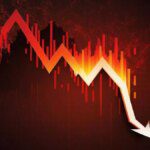GameStop: A Look Back at the Epic Stock Saga and What’s Ahead
In the annals of financial history, few events have captivated the public’s imagination as profoundly as the GameStop stock saga of early 2021. It highlighted the power of retail investors, the role of social media in finance, and the often opaque mechanisms of the stock market. As we reflect on this extraordinary episode, it’s essential to examine its origins, impact, and what the future may hold for GameStop and the market at large.
The Rise of GameStop: Wall Street Meets Reddit
GameStop, a brick-and-mortar video game retailer, found itself on the verge of bankruptcy, struggling against the backdrop of a pandemic that accelerated the shift to digital gaming and online sales. While institutional investors were shorting the stock, betting against its future, a group of retail investors congregated on the subreddit r/wallstreetbets. This community of individual traders began to see the shorting of GameStop not just as a financial maneuver but as an opportunity to make a statement against Wall Street.
By late January 2021, a perfect storm materialized. Fueled by memes, a sense of camaraderie, and the belief that they could drive up the stock price, these retail investors bought shares in large quantities. The result? GameStop’s stock skyrocketed from around $20 at the beginning of January to an astonishing high of nearly $483 by January 28th. The phenomenon sent shockwaves throughout the financial world and generated discussions on market manipulation, ethics in investing, and the democratization of finance.
The Aftermath: Regulatory Scrutiny and Market Implications
The meteoric rise of GameStop’s stock prompted intense scrutiny from regulators, financial institutions, and lawmakers. The incident raised questions about the role of social media in trading and whether trades driven by online communities constituted market manipulation. It also ignited a debate over the practices of hedge funds, many of which faced significant financial losses due to their short positions.
In March 2021, the U.S. House Committee on Financial Services held a hearing that included testimonies from key figures such as Robinhood’s CEO, Vlad Tenev, and the r/wallstreetbets moderator. The hearing explored the dynamics of equity trading platforms and their impact on retail investors. Influential discussions on potential regulations and the need for greater transparency in short-selling practices emerged, highlighting the growing concern about the vulnerability of retail investors.
GameStop’s Evolving Business Model
As the dust settled, GameStop was left to reevaluate its operations. The company took strategic steps to shift its focus from physical store sales to an online-centric business model. In the wake of the stock frenzy, GameStop recruited a new CEO, Matt Furlong, and formed partnerships with tech companies to enhance its digital presence.
In addition, GameStop entered the burgeoning world of NFTs (non-fungible tokens), launching a marketplace aimed at attracting gamers and digital collectors. This pivot reflects an acknowledgment of the shifting landscape in retail and the potential future beyond traditional video games.
What’s Ahead for GameStop and Retail Investing?
As we look to the future, several questions linger regarding GameStop’s trajectory and the overall landscape of retail investing.
-
Sustainability of Growth: While GameStop’s stock experienced a remarkable spike, the long-term sustainability of its valuation remains uncertain. Investors must weigh the potential of the company’s new business strategies against its historical struggles and market competition.
-
Regulatory Changes: In response to the events of early 2021, it is likely that regulatory bodies will introduce reforms aimed at providing more protection for retail investors. How these changes will impact the trading environment remains to be seen.
-
Cultural Shift in Investing: The GameStop saga has given rise to a new breed of investor who is willing to leverage social media for financial gains. This shift could lead to further democratization of stock trading, but it also raises concerns about the risk of investing based on trends rather than fundamentals.
- Impact of Technology on Trading: The increasing influence of technology platforms like Robinhood and the rise of decentralized finance (DeFi) may continue to reshape how retail investors engage with the market.
Conclusion
The GameStop saga serves as a compelling case study in the interplay between technology, community, and finance. As we continue to witness the evolution of the financial landscape, the lessons learned from this remarkable episode will undoubtedly shape the future of investing for years to come. While GameStop’s immediate future may still be uncertain, the discourse it generated about market access, reform, and investor empowerment remains critically important in ensuring a more equitable financial system.









